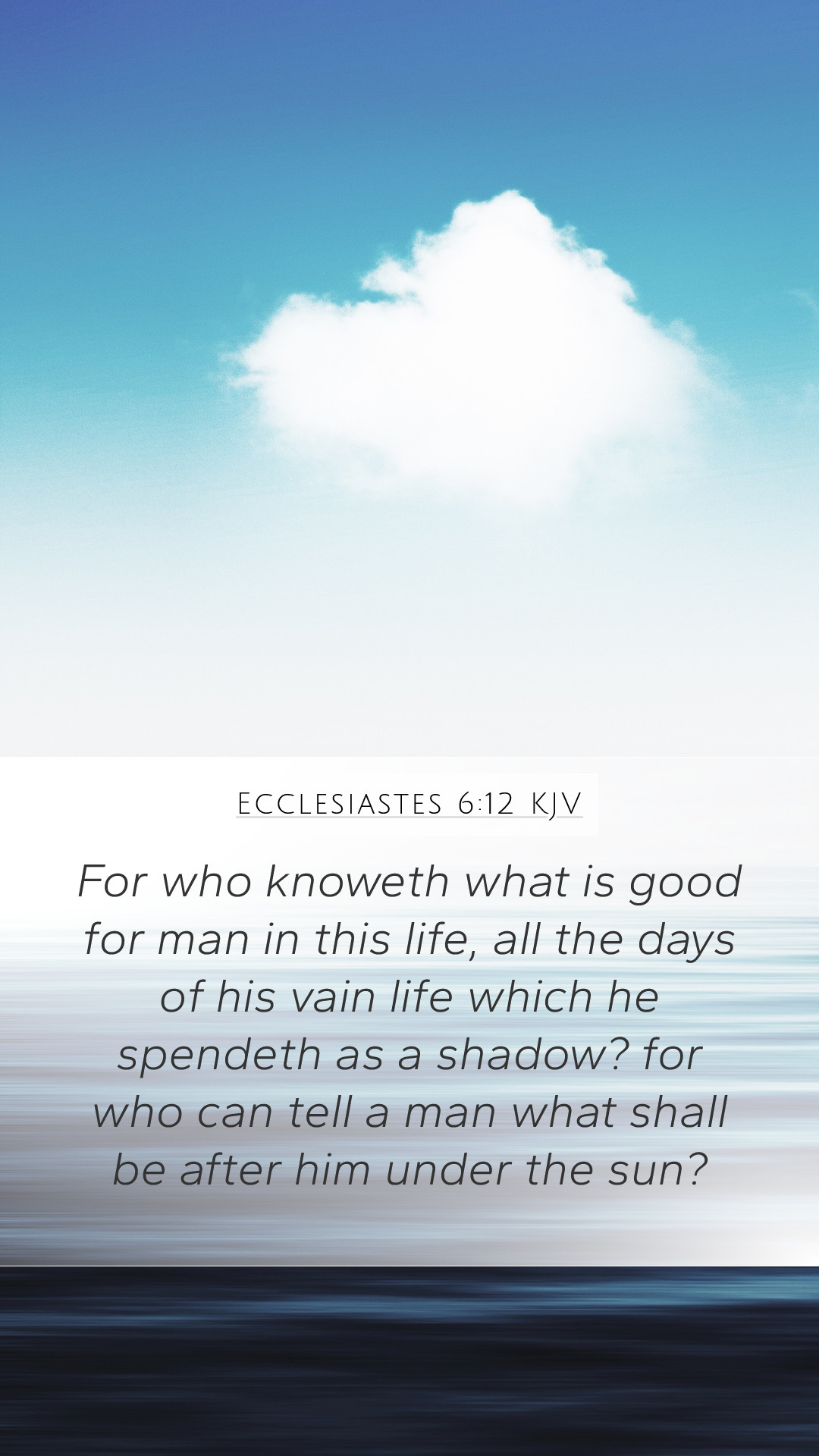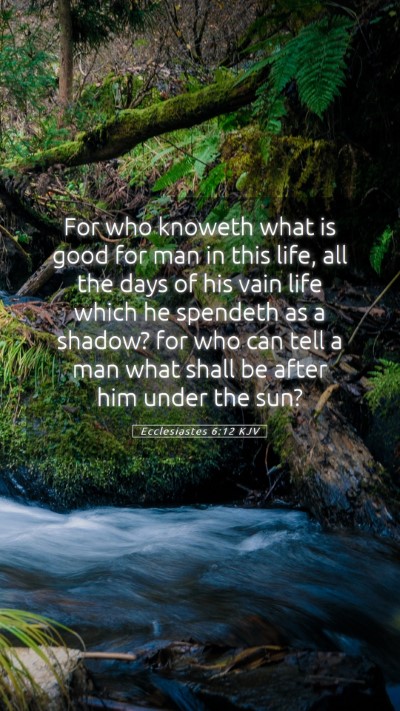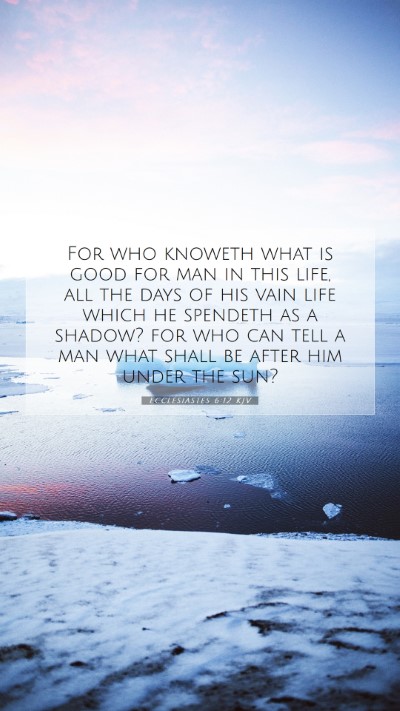Old Testament
Genesis Exodus Leviticus Numbers Deuteronomy Joshua Judges Ruth 1 Samuel 2 Samuel 1 Kings 2 Kings 1 Chronicles 2 Chronicles Ezra Nehemiah Esther Job Psalms Proverbs Ecclesiastes Song of Solomon Isaiah Jeremiah Lamentations Ezekiel Daniel Hosea Joel Amos Obadiah Jonah Micah Nahum Habakkuk Zephaniah Haggai Zechariah MalachiEcclesiastes 6:12 Meaning
What is the meaning of Ecclesiastes 6:12?
For who knoweth what is good for man in this life, all the days of his vain life which he spendeth as a shadow? for who can tell a man what shall be after him under the sun?
Ecclesiastes 6:12 Bible Verse Meaning
Understanding Ecclesiastes 6:12
Ecclesiastes 6:12 presents a profound question regarding the meaning of life and the futility found within human pursuits. This verse states, "For who knows what is good for man in life, all the days of his vain life which he spends as a shadow? For who can tell a man what will happen after him under the sun?" The meaning of this verse is rich and layered, and several public domain commentaries shed light on its interpretation.
Bible Verse Meaning
The verse serves as a meditation on the transient nature of life. Matthew Henry emphasizes that life is often experienced as "vanity," highlighting the elusiveness of what is deemed truly beneficial in the grand scheme of existence. The term "shadow" suggests that life is brief and insubstantial, directing the reader’s focus towards the need for greater wisdom in determining the essence of a meaningful life.
Bible Verse Interpretations
Albert Barnes, in his commentary, addresses the perplexing nature of human understanding concerning the purpose of life. He posits that without divine guidance, humans struggle to discern what is genuinely good for their lives. This aligns with the broader theme of Ecclesiastes, where the Teacher contemplates the futility of worldly pursuits and the limitations of human insight beyond the grave.
Bible Verse Understanding
Adam Clarke furthers this line of thought by noting that the verse implies uncertainty about the future. It questions who among humanity can accurately predict outcomes or what is beneficial for themselves or others, especially after they are no longer alive. This reflects the inherent mysteries surrounding life and mortality, underscoring the humility required when faced with such profound existential questions.
Bible Verse Explanations
In light of all these reflections, Ecclesiastes 6:12 can be seen as an invitation to delve deeper into self-exploration and spiritual growth. The verse challenges readers to seek understanding not merely from life experiences but to turn towards spiritual truths and divine wisdom to grasp the essence of goodness in living.
Scripture Analysis
- Human Limitations: The verse reveals the limitations of human understanding, suggesting that without divine insight, our grasp on what is ultimately beneficial is severely hindered.
- Transience of Life: By presenting life as a "shadow," it captures the ephemeral quality of human existence, prompting reflection on how one lives their life.
- Search for Meaning: The inquiry posed about knowing what is good for man highlights humanity's continuous search for meaning beyond temporal pleasures.
Application of Ecclesiastes 6:12
This verse serves as a sobering reminder for modern readers in their daily lives. It challenges individuals to engage with questions about their purpose and the nature of their pursuits. As many engage in Bible study groups or online Bible study sessions, Ecclesiastes 6:12 offers a profound topic for Bible study lessons aimed at discerning the true value of life and direction.
Additional Insights
Reflecting upon this verse can lead to significant insight into how one approaches the various Bible study tools at their disposal. The verse encourages reliance on biblical exegesis to seek clarity in understanding and applying Scripture positively to daily situations.
Cross References
- Psalm 39:4-5 – Examining the brevity of life.
- Proverbs 27:1 – Emphasizing the unpredictability of tomorrow.
- James 4:14 – Comparing life to a vapor that appears for a while and then vanishes.


